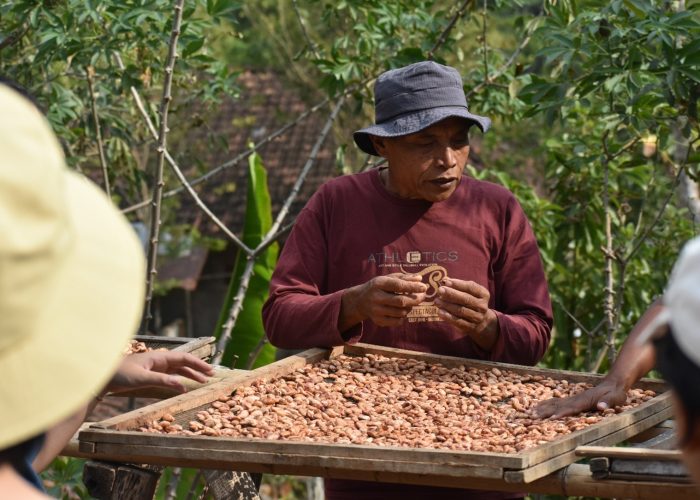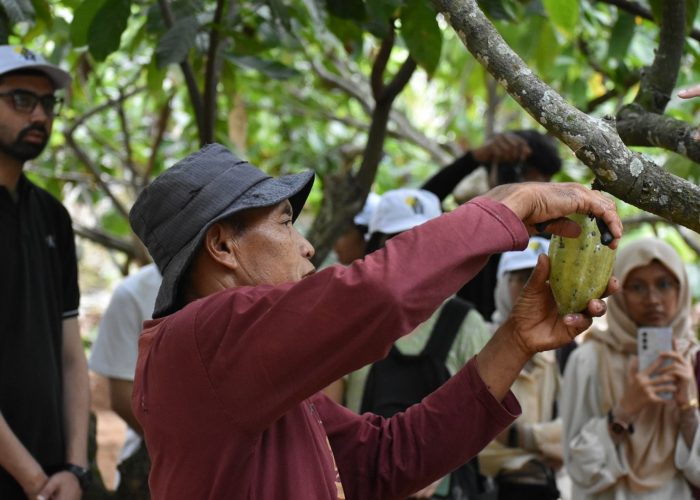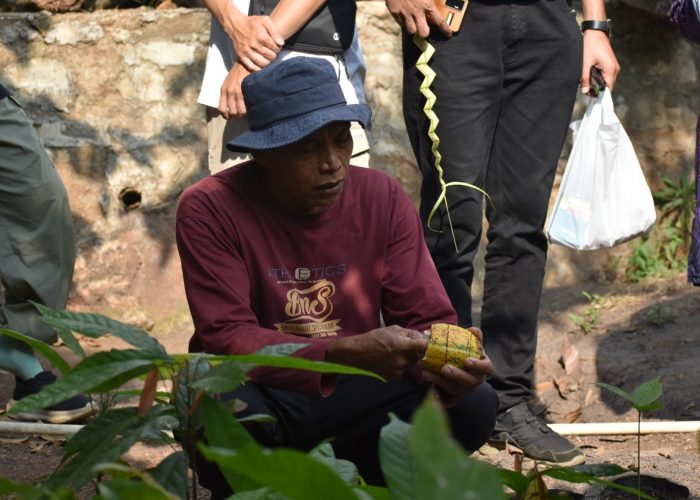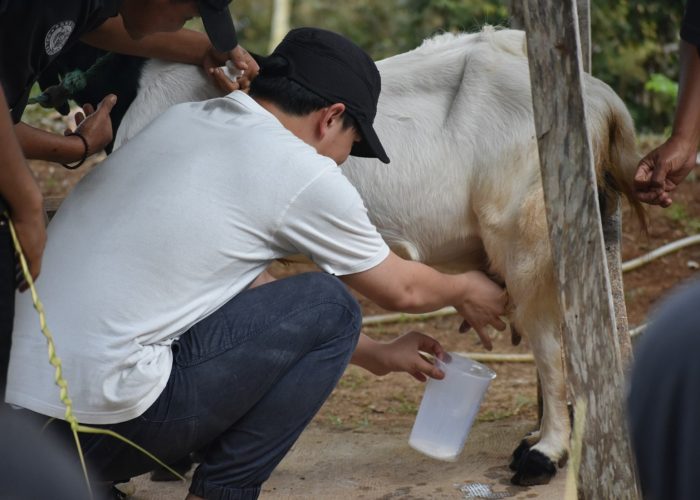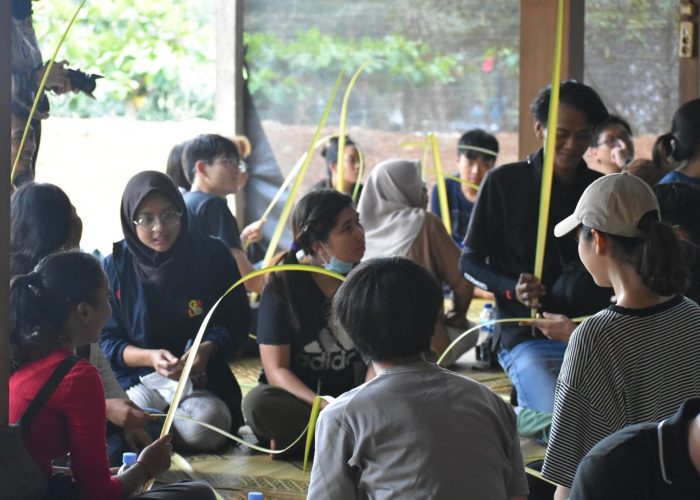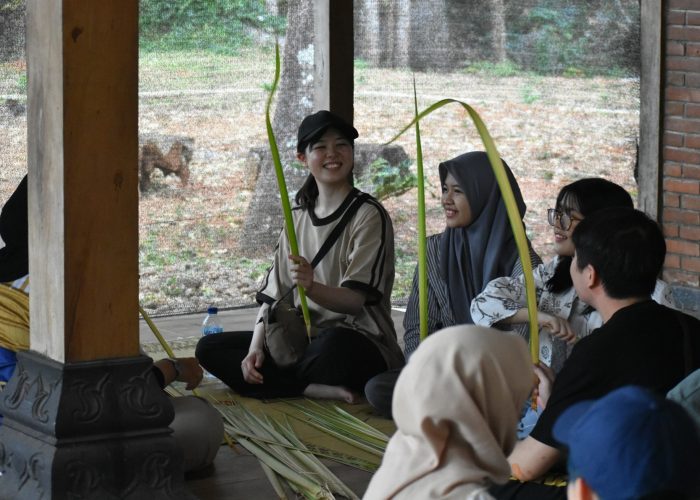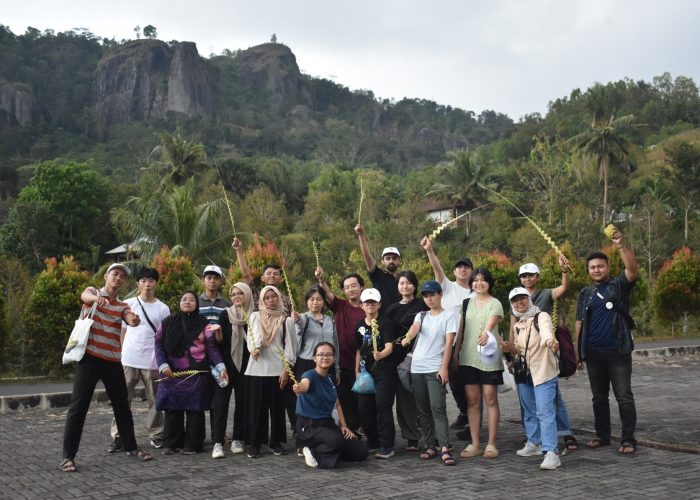Yogyakarta, 2 August 2024 – The last day of the agenda for The 7th International Summer Course in Sustainable Development: Sustainable Bioprospecting of Tropical Biodiversity in 2024, participants toured one of the tourist villages in Yogyakarta, the Nglanggeran Tourism Village, Patuk, Gunung Kidul.
The agenda at Nglanggeran Tourism Village begins with a brief explanation regarding the tourist village. Nglanggeran Tourism Village is one of the Best Tourism Villages in the world level Tourism Village awards organized by the world tourism body UNWTO (United Nation World Tourism Organization) with the concept of CBT or Community Based Tourism. The main attraction of this tourist village is the existence of the Ancient Volcano, so besides carrying the concept of a community-based agricultural tourist village, the Nglanggeran Tourism Village is also a place for tourism and geological studies by experts. Nglanggeran itself is also one of the Geosites in the Gunung Sewu UNESCO Global Geopark area, which is included in the International Geopark network.
The participants then had the opportunity to learn one of the crafts made from coconut leaves or “janur”. Janur is a leaf that is commonly used as a craft in various ceremonies and celebrations in Indonesia, culinary delights such as ketupat or used in traditional games. This time, summer course participants learned to make keris crafts from janur. The keris itself is a typical Javanese weapon and this keris craft is widely used in traditional games and ceremonies. All participants were enthusiastic about folding and making these crafts.
The next agenda is to visit the cocoa plantation and cultivation area. The plantation area is a community-owned plantation that is integrated into the Nglanggeran Tourism Village tourism program so that participants learn directly about the cultivation and processing of cocoa fruit from local farmers who are members of the Nglanggeran Village POKDARWIS (Tourism Awareness Group). The participants were enthusiastic about listening to and seeing firsthand the cocoa cultivation process after previously visiting the chocolate factory at Cokelat Monggo last Tuesday (30/7).
After learning about cocoa cultivation, participants were invited to visit a goat farm managed by the local community. There, participants were invited to participate in feeding goats and learn directly about goat milking techniques. Participants then visited a factory that processes goat’s milk into powdered milk and other products such as soap and goat’s milk chips.
Ending the trip in Nglanggeran Village, the participants explored the Nglanggeran Embung, an artificial lake that functions as a rainwater reservoir and is used to irrigate plantations in the dry season.
The 7th International Summer Course in Sustainable Development: Sustainable Bioprospecting of Tropical Biodiversity ended with a closing, taking place at Rumah Makan Padiku. Dr. Eko Agus Suyono, M.App.Sc. expressed his appreciation to all participants and committees who have participated in a series of online and offline summer course activities. It is hoped that this activity will continue as an effort to expand networks in the international arena as well as various experiences and understanding in the world of biology.
The 7th International Summer Course in Sustainable Development: Sustainable Bioprospecting of Tropical Biodiversity ended with a closing, taking place at Rumah Makan Padiku. Dr. Eko Agus Suyono, M.App.Sc. expressed his appreciation to all participants and committees who have participated in a series of online and offline summer course activities. It is hoped that this activity will continue as an effort to expand networks in the international arena as well as various experiences and understanding in the world of biology.

